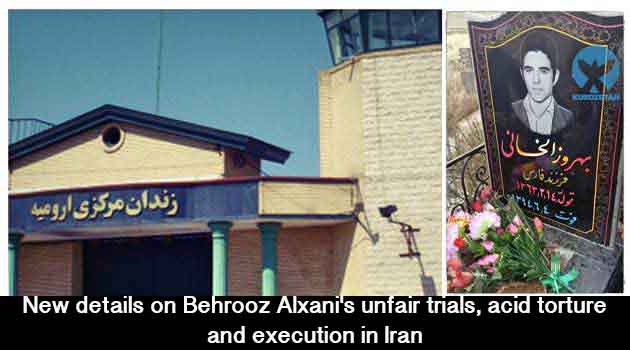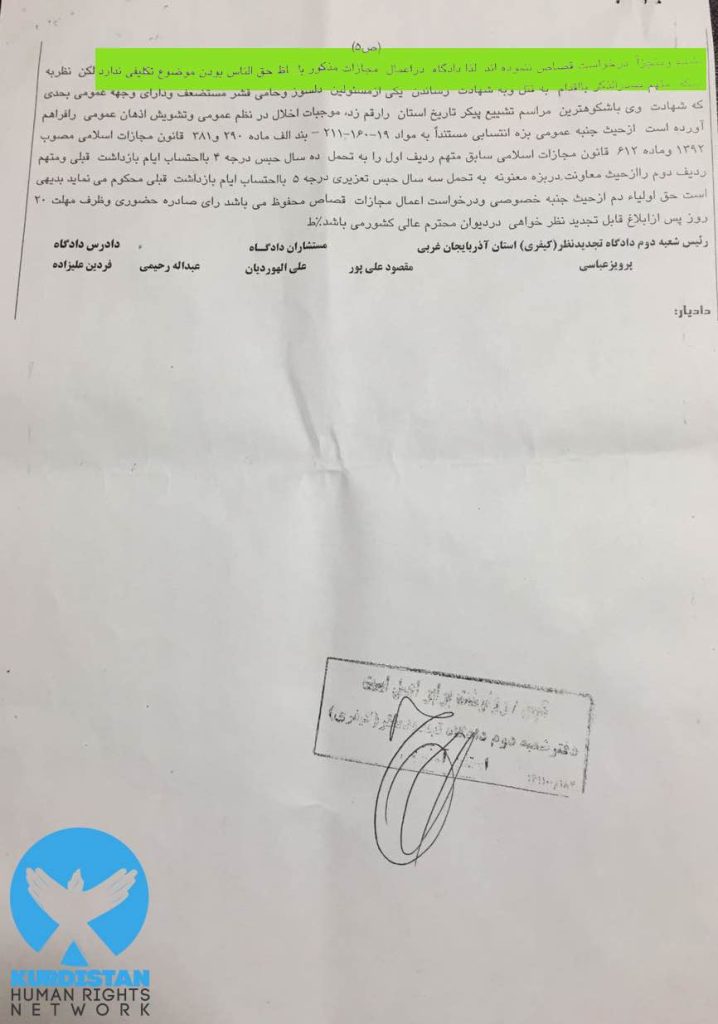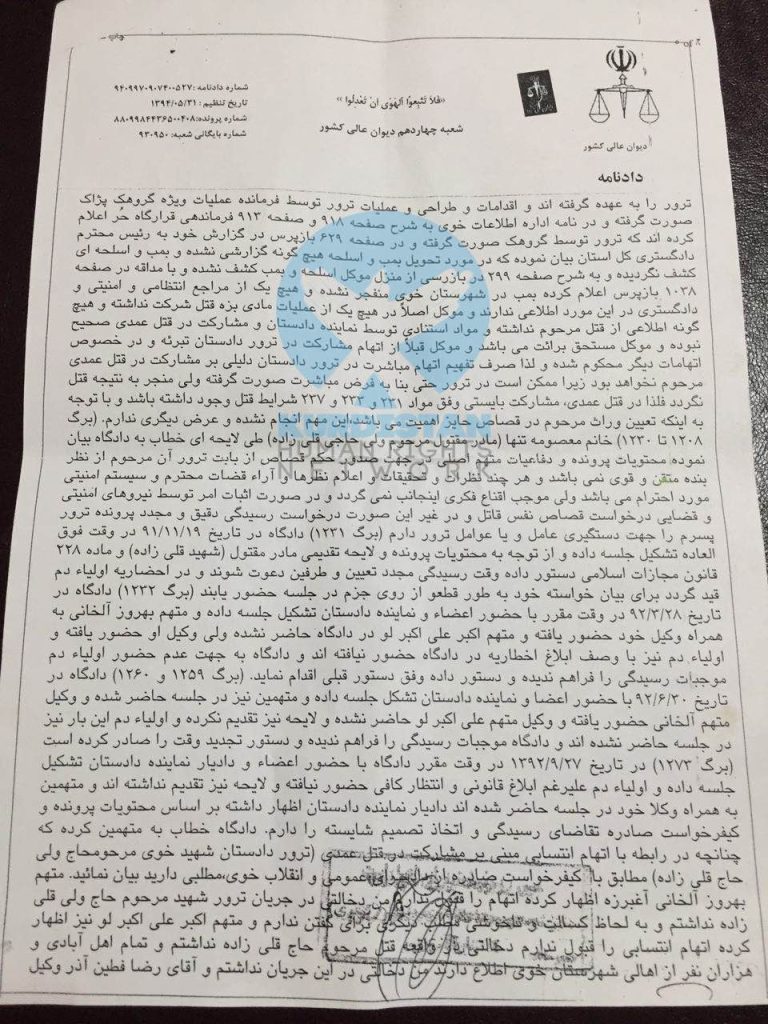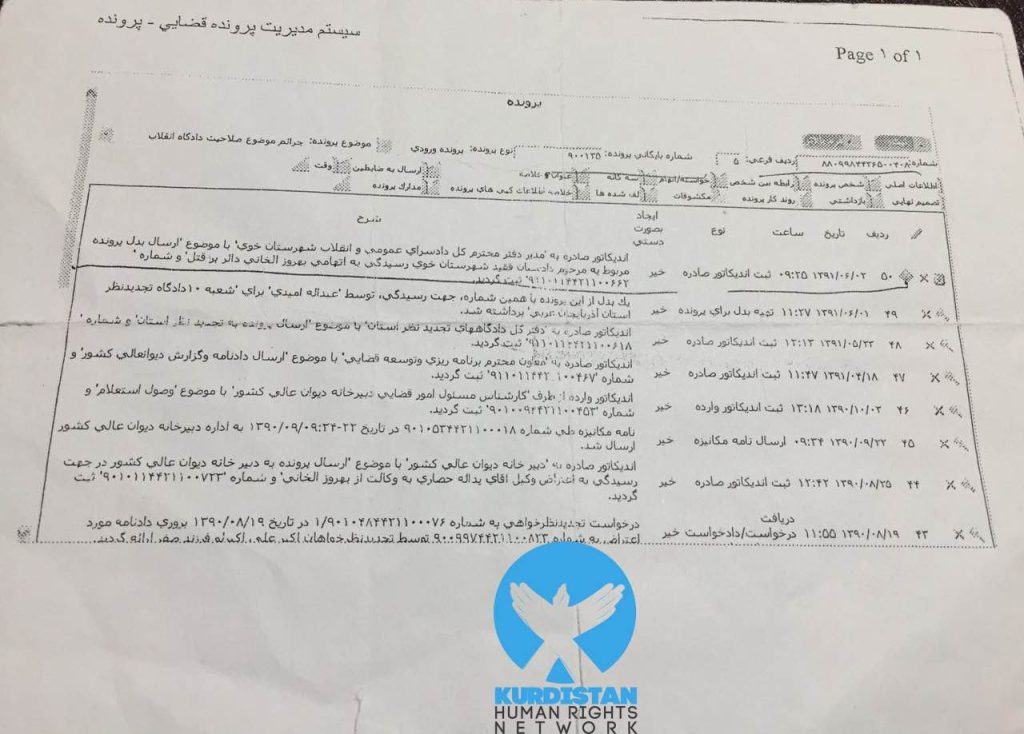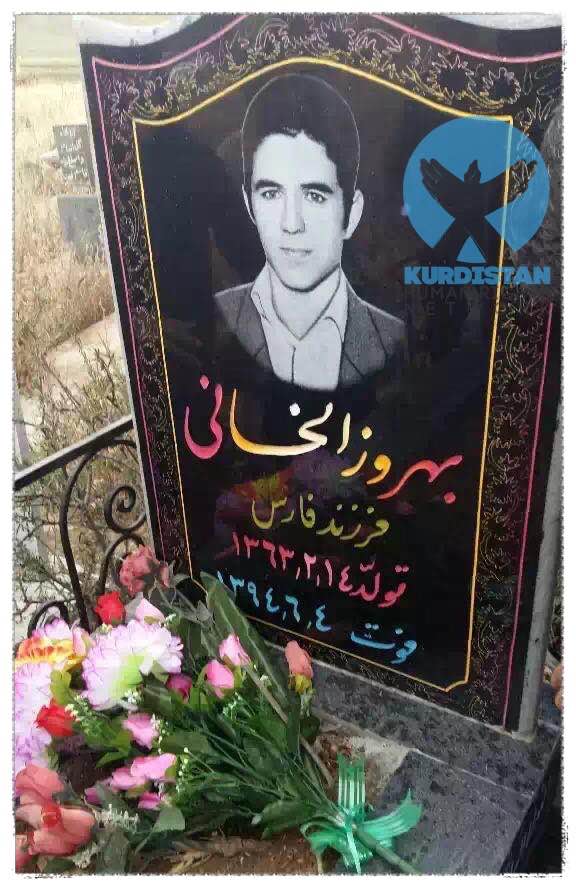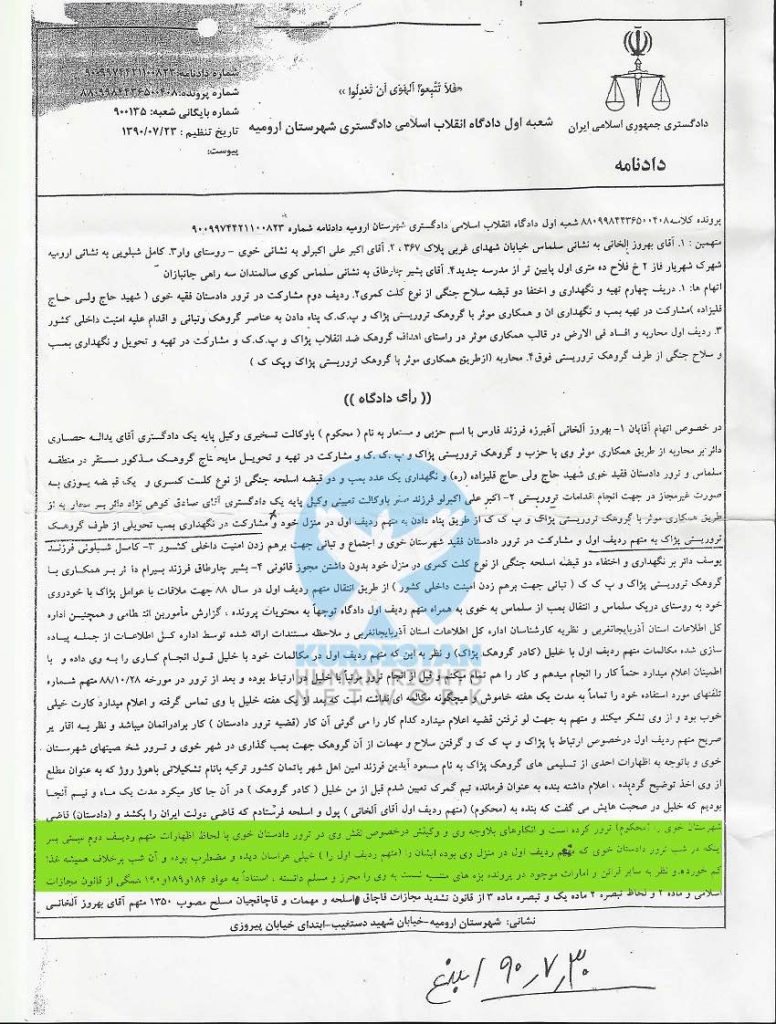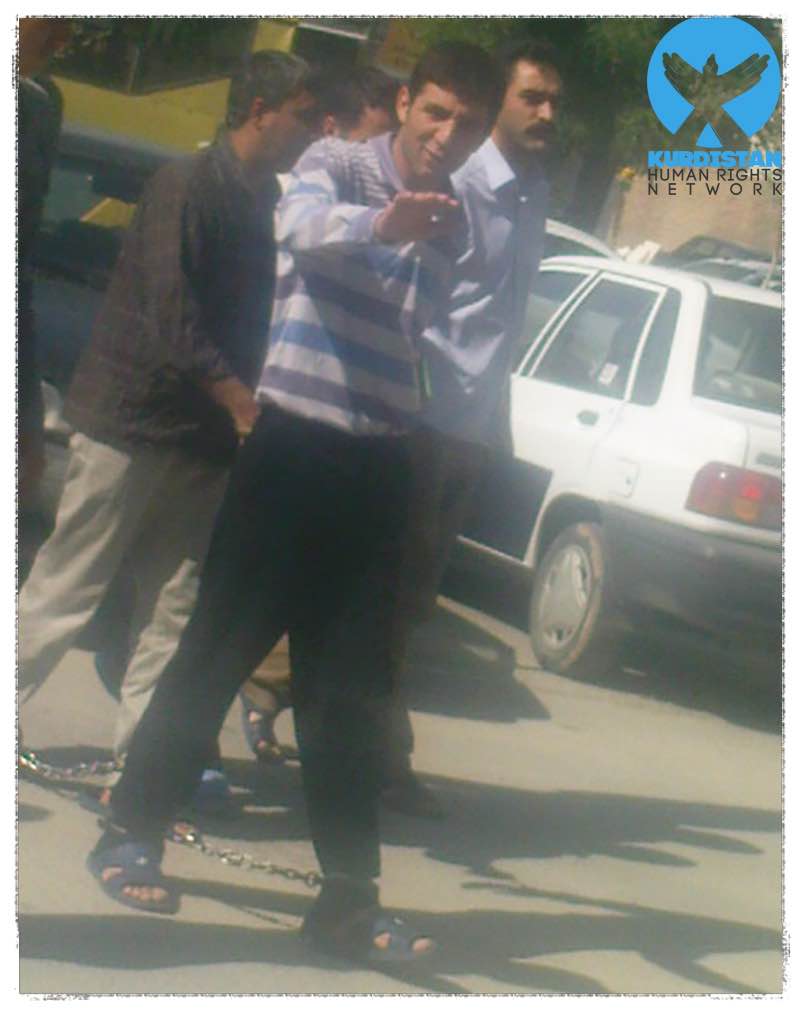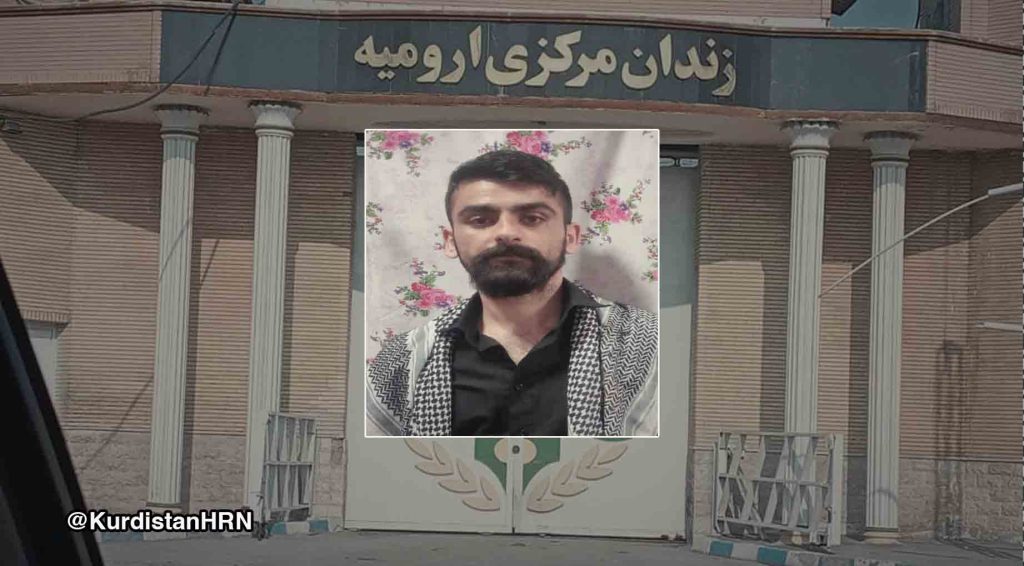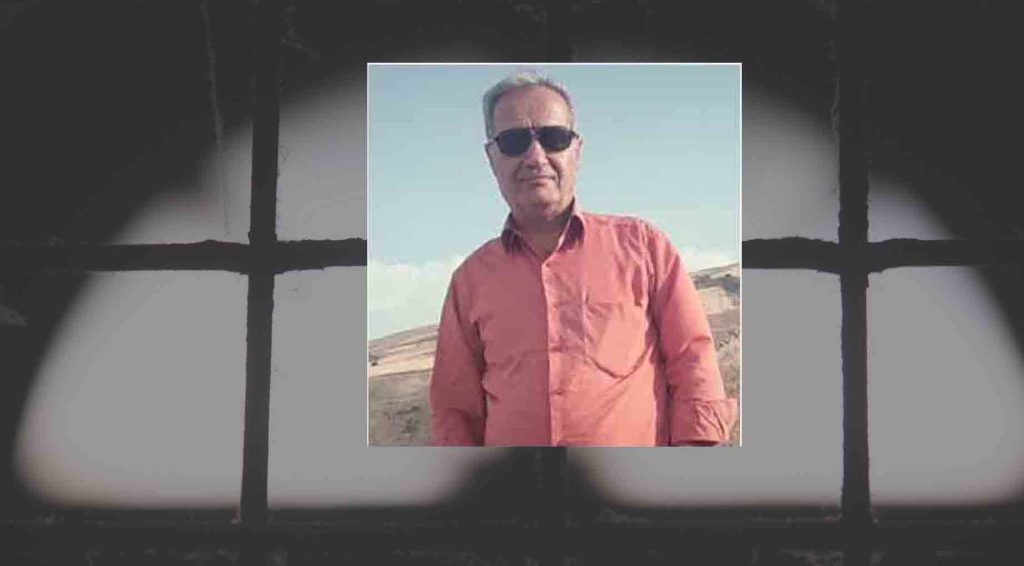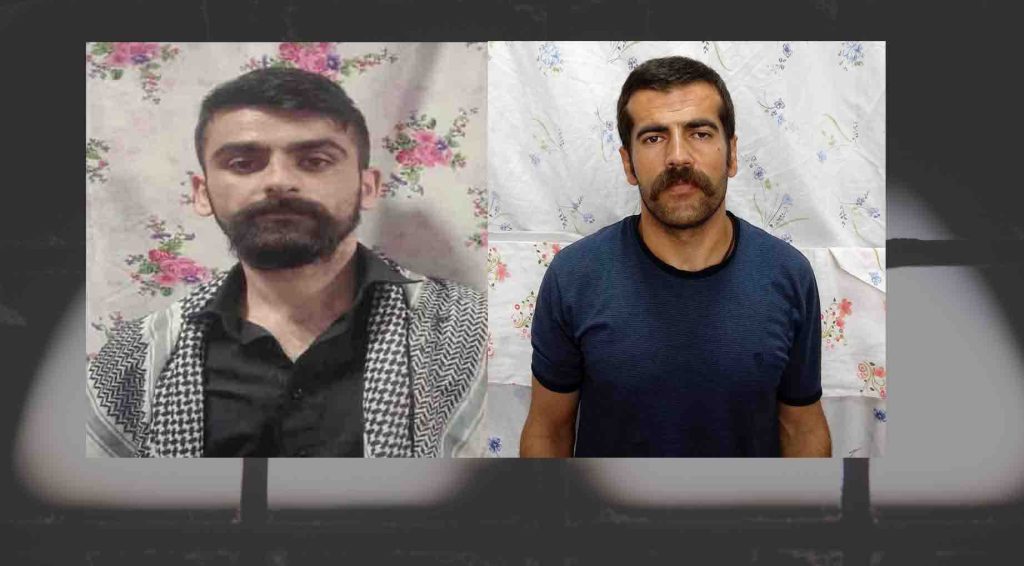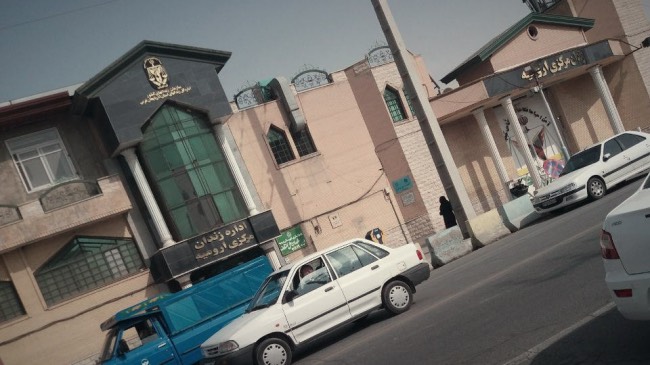26 August 2016 was the first anniversary of the execution by hanging of Kurdish political activist prisoner Behrooz Alxani.
He was a Kurdish political prisoner in Orumiyeh Central Prison.
KHRN has obtained new details and evidence about the judicial process of his trial and how he was sentenced to death, which we are now publishing for world’s public opinion.
Arrest, interrogation
Behrooz Alxani was born in 1984, in Salmas.
The Iranian security forces arrested him on 2 January 2010, following which he was taken to the detention centre of the office of the Intelligence Ministry in Orumiyeh.
His family knew nothing about his whereabouts for four days until 30 January 2010, when a group of Iranian security officers dressed in civilian clothes went to his parents’ home in Salmas to search the house.
When Behrooz’s family had asked about him and his whereabouts, the officers had replied saying that he was arrested on charges of “possession of alcoholic beverages”.
Alxani was held in the solitary confinement cells of the Iranian intelligence office in Orumiyeh and Khoy for 15 months, during which he was not allowed to have any contact with his family members and relatives.
He was accused of “effective cooperation with PJAK [Free Life Party of Kurdistan] and the assassination of the prosecutor of the city of Khoy”.
He was interrogated under severe torture but despite the torment he faced, he never accepted the accusations brought against him and refused to confirm any sorts of participation in the assassination of the prosecutor of Khoy.
He was transferred to the Orumiyeh Central Prison after he had spent 15 months in the detention centre of the Intelligence Ministry.
He was kept in solitary confinement for another four month at Orumiyeh Central Prison.
He was later transferred to the prison’s ward of offenders of drug-related crimes.
The period of 19 months that he spent in the confinement cell of the prison had a severe impact on his emotional health.
He was banned even from talking with fellow inmates at the prison.
After 19 months, his family members were finally allowed to visit him at the Orumiyeh Central Prison, but only with the presence of the prison’s interrogators who had been in charge of his interrogation.
Unfair trials
On 15 October 2011, Alxani attended trial at branch 1 of Oroumiyeh Islamic Revolutionary Court headed by judge Chaboki.
He was charged with Moharebeh (Enmity Against God) for “effective cooperation with PJAK and assassination of the prosecutor of Khoy as well as possession of illegal weapons”.
The trial was held without his the presence of his lawyer to defend him.
He was sentenced to death for Moharebeh, assassination, and ten years imprisonment for possession of illegal weapons.
The written verdict was given to him at the prison.
However, there is absolutely no mention of any kinds of evidence or testimony for any of the crimes that he was allegedly charged with in the written verdict, issued by the branch 1 of Orumiyeh Islamic Revolutionary Court.
What the court used as evidence was testimony of according another prisoner, also arrested for involvement in the same case.
According to the court’s verdict, the other prisoner’s testimony had said that “on the night of the assassination of the prosecutor of Khoy, Alxani seemed somewhat anxious and fearful, and on that night he ate very little food.”
Masoomeh Tanha, the mother of the killed victim, in a letter to the court, which is mentioned in the written verdict of the branch 14 of the Supreme Court, says: ” The contents of this file and the defence of the main accused, in my opinion are not convincing enough to issue a death penalty for the accused. Although I have great respect for the opinions of the honoured judges, and the security system, nevertheless, I am not convinced.”
Given the lack of evidence on Alxani’s part in the murder, the victim’s family and next of kin (also known as Olya el dam), did not take part in the three court sessions in which Alxani was tried.
Prior to the trials the court officials had summoned the family members of the victim, but the family did not attend the trials and they did not even file for Qisas against Alxani.
On 7 January 2014, the branch 2 of Orumiyeh Court of Appeal confirmed the initial death sentence.
When the defence lawyer protested against the death sentence, the case was referred to the branch 14 of the Supreme Court for Revision.
But while still waiting to hear from the Supreme Court’s decision, Alxani was executed by hanging at 0100 local time on Wednesday 26 August 2015, in the Orumiyeh Central Prison.
Execution
One of Alxani’s relatives who managed to go to the prison with Alxani’s immediate family members to see him for the last time before his execution, gave an interview to the KHRN saying that
“On 25 August 2015, in the afternoon, our family along with families of five drug offenders on death row, who were also transferred to solitary confinement before their executions, were allowed to visit our loved ones for the last time.
Alxani was in a normal mental state. He talked about his trial and his death sentence and how everything was so unfair. Other families were also busy with their last meetings when all of a sudden the prison officers came towards our family and forcibly took away Alxani, dragged him on the floor and did not let him finish his last words. This led to clashes between the officers and the female members of Alxani’s family. A few windows were broken and finally a large number of prison guards came and took Alxani’s family out of the meeting hall.”
The source went on saying: “At 1:00 [local time], our family and the families of the other five prisoners, who were also waiting outside the prison, were informed that the executions been carried out. The other five families were called to receive the bodies of their loved ones, but our family was told that we had to bring a letter from Orumiyeh general prosecutor in order to have Alxani’s body returned to be buried in a funeral.’
The source said: “The following morning we went to the Orumiyeh prosecutor’s office and demanded the return of his body, but we were told by the prosecutor that for security reasons it was not possible. The prosecutor reassured Alxani’s father that his son’s body was washed and buried respectfully according to Islamic rituals (kafn u dafn).”
Family finds buried body
The KHRN source said that “five days after his execution and after much query and search with the help of our friends and relatives in Orumiyeh, we learned that Alxani was buried in a land near the Bagh-e-Rezwan cemetery in Orumiyeh. The following evening, we went to the place and after a long search with our friends, we managed to find his body buried 500 meters away from the cemetery, in a very unlikely place for a body to be buried, in a place full of rubbish, and it was obvious that they had used bulldozers to cover the pit with soil. He was buried in a pit the depth of which was two-and-a-half meters and he was in the clothes we saw on him the day before his execution on our last visit.”
Regarding the words of the Orumiyeh prosecutor who told Alxani’s father that the body had been buried in Islamic tradition and that the boy had been washed prior to burial, the KHRN source said: ‘We found the body of Alxani with his face covered by his shirt, he was simply dumped in there without any Islamic burial procession. When we pulled the body out of the pit, we noticed to our horror that his feet were had acid burn. We took his body to a safe place and washed and buried him.”
To the surprise of Alxani’s family and lawyer, the Supreme Court’s final decision had been received three months after the execution of Alxani by hanging.
“It was three months after the execution of Alxani when his lawyer contacted his immediate family saying he had just received the Supreme Court’s ruling, the source said, adding: “Alxani’s family replied saying their son was executed while they were waiting to hear from the Supreme Court about their final decision.”
The written verdict had been issued on 22 August 2015; four days before his execution, but Alxani’s lawyer and the family received it three months after the execution had been carried out at the prison in Orumiyeh.

